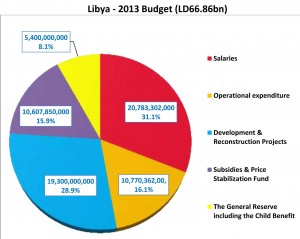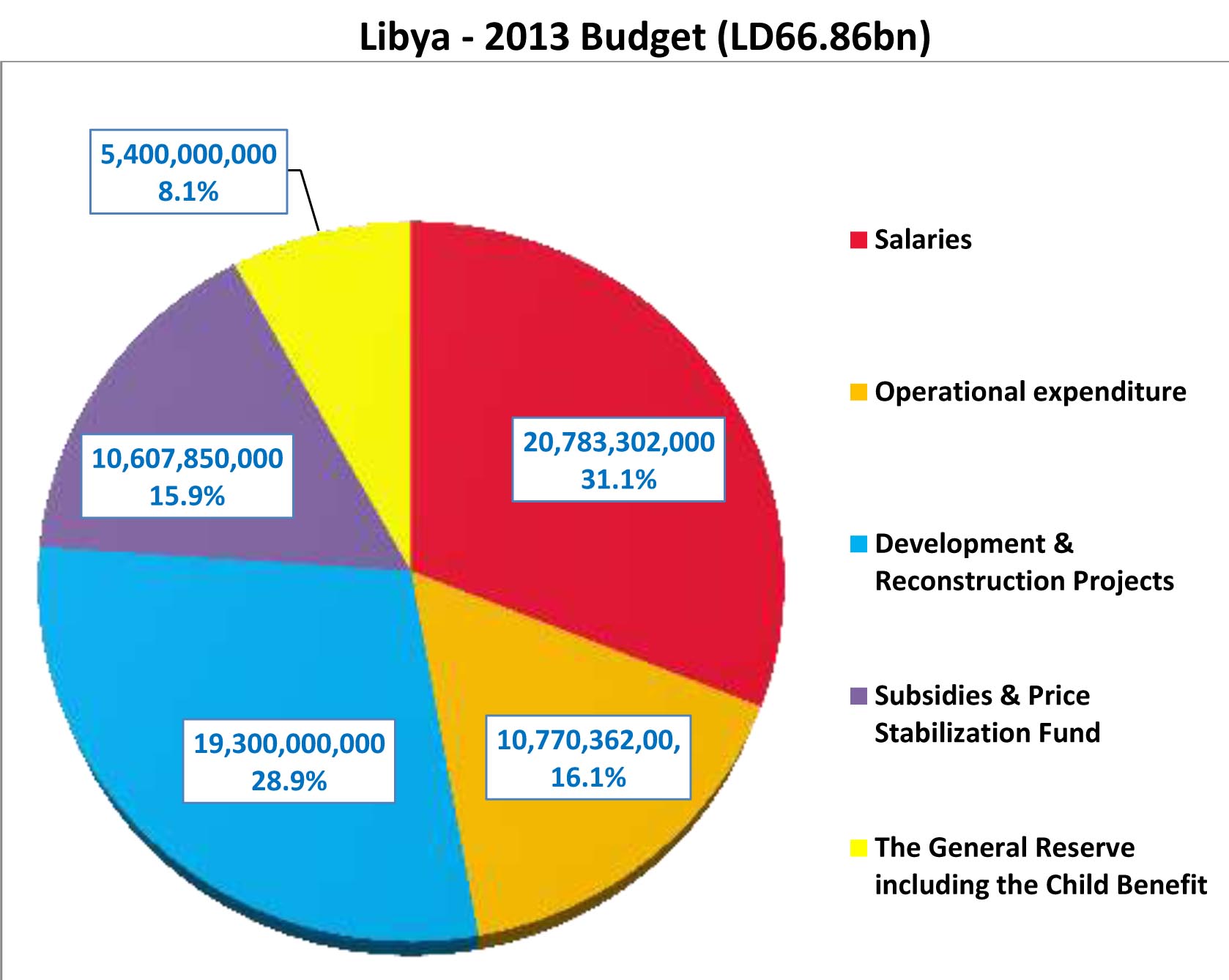By Sami Zaptia.
Tripoli, 11 February 2014:
Ali Zeidan’s government has revealed that it had received only LD 50.48 billion in 2013 from . . .[restrict]the 2013 budget, with only “a few billion” leftover in its various accounts, it said yesterday in a statement.
The statement posted on the government’s Facebook page gave a detailed breakdown of all the money it has received, quarter by quarter (see table below).
| Quarter One | 20,182,041,302 |
| Quarter Two | 7,892,766,090 |
| Quarter Three | 13,276,675,382 |
| Quarter Four | 9.129,442,518 |
| Total | 50,480,925,292 |
| Public Debt | 2,152,987 |
It will be recalled that the 2013 budget totalled LD 66.86 billion. However, the blockade of Libya’s eastern oil ports by the militant federalist Ibrahim Jadhran since the middle of the summer of 2013 means that in reality Libya has had reduced oil revenues which have caused the budget to shrink.

In December, Economy Minister, Mustafa Abufanas had revealed that the oil blockade had cost the Libyan government “over US$ 10 billion” (LD 12.5 bn).
Abufanas had said that the continuation of the oil blockades in the east of Libya preventing oil exports, would have a negative effect on the Libyan budget because of the dependence of the Libyan economy on oil revenues. The blockade by has reduced Libya’s oil exports to less than a third.
A recent World Bank MENA Quarterly Economic Briefing on Libya said that “the oil sector, the major contributor to growth and government revenue (accounting for about 70 percent of GDP and 95 percent of revenue) has been crippled by prolonged strikes at key oil terminals and loading ports since July, removing more than 1 million barrels per day (b/d) of crude oil production from exports”, it explained.
The latest production figures provided by the Ministry of Oil for 2 February show that Libya exported only 478,329 bpd, compared to peaks of about 1.5 million bpd prior to the oil blockades. Gas production was at 1.849.6 million cubic feet.
This reduced revenue and increased spending by the Ali Zeidan government has meant that, the World Bank report said, “fiscal and current account balances have deteriorated sharply due to the oil blockade that has reduced oil revenue by 80 percent and also to continued expansionary fiscal policy”.
“This double effect of reduced revenues and increased wages”, it continued, has led the World Bank to revise “its estimates for the fiscal stance of the government in 2013 and 2014. It is expected that the fiscal surplus of 2012 will turn into a deficit of about 5 percent of GDP for 2013 and 4 percent of GDP for 2014 respectively. The large current account surplus” that Libya had enjoyed for years ”is also expected to fall sharply and reach near zero in 2013 and recover only slightly in 2014?, the World Bank concluded.
“Under the current situation, the government has had to dig deeper into its large stock of foreign reserves, which stood at $124 billion at end 2012, to finance its budget deficits in 2013 and 2014?, the report explained, adding that ”between $10 and $13 billion have already been used in 2013?. [/restrict]








